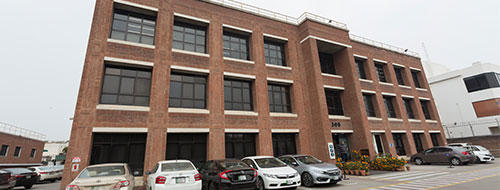Every child deserves to grow in a safe environment with access to clean Water, Sanitation and Hygiene (WASH) facilities. It’s their fundamental right. Schools, where children spend a large part of their day, are responsible for creating an environment that upholds these rights. Access to clean water and hygienic environment in schools is particularly important because it helps students fight diseases, attend classes regularly and thereby, perform better1
Keeping this in mind and as a good water steward in the communities it operates in, Nestlé Pakistan launched its Rainwater Harvesting Project in 2020. Operating in rural Islamabad currently, the project focuses on providing clean water to underprivileged girls’ schools in the area. As part of this effort, Nestlé invested in the development of a Rainwater Harvester, which collects rainwater from school’s roofs, filters it, and then stores it in tanks for usage throughout the year.
This system offers several advantages; it ensures that despite inconsistency in municipal water supply, these schools will have access to clean water throughout the year. The cleaning and maintenance of this system are integrated within its technological structure, making usage simpler and more cost-effective. Moreover, filtered, and stored water can be used for a sanitation and hygiene activities as well as gardening.
Globally, millions of school-going children do not have access to clean water and soap to wash hands with. Children from rural areas, slums, disaster-prone areas, and low-income countries are hit the hardest2. The situation in Pakistan is similar: one in three schools lack sanitation facilities. Since teenage girls that are reaching puberty need a sanitary environment with private and decent sanitation facilities, their tendency to drop-out of school increases when they don’t have access to it. Research also shows that girls who have reached puberty are more likely to attend school, where latrines with clean water are available.3
Currently, the Rainwater Harvester is installed at the Islamabad Model College for Girls, Kot Hathial in Bhara Kau, Islamabad. It provides clean water to over 1,600 students and the faculty. This intervention is a step in the right direction to ensure students attend school, in a country with the second highest rate of out-of-school children, majority of whom are girls4.
These efforts are in line with Sustainable Development Goal (SDG) 6 by ensuring ‘clean water and sanitation’, and particularly target 6.2 by working towards access to adequate and equitable sanitation and hygiene with special attention to the needs of girls.
Nestlé aims to expand the project at two more girls’ schools in the area at least. With every school’s addition, the amount of water stored by the system will also expand, increasing the reach and access of clean water to more girl students.
The Rainwater Harvesting Project is part of Nestlé’s Caring for Water-Pakistan (C4W-Pakistan), the company’s initiative to achieve its Waters Pledge. Under the Pledge, it has committed to regenerate water cycle and create a positive water impact everywhere its Waters Business operates by 2025.
In Commitment with



